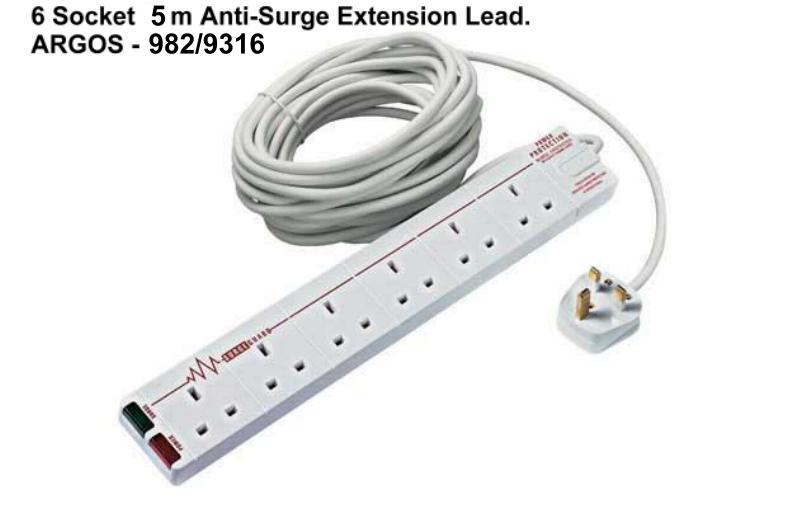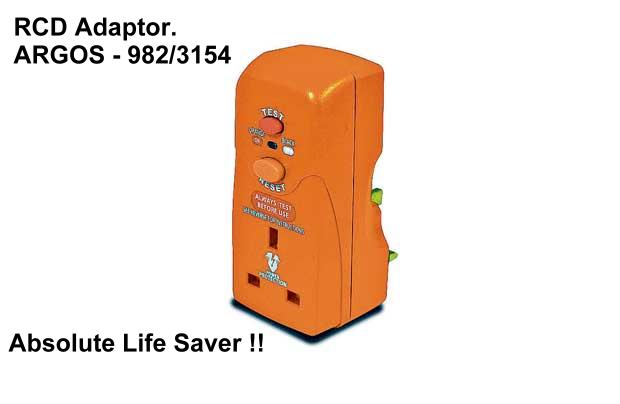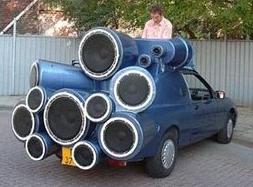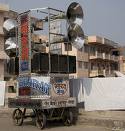|
USEFUL STUFF,..
Here you will notice a few extra/different buttons on the pole. These are links to the various categories
of info you can find in this section.
Schematics here are free and offered on the understanding that you do know what you are doing when you
take the case apart, or when you put components together! If it blows up,.. don't blame me, I have
worked with these diagrams and actually FIXED kit. If it still don't work, you have what is known
in my place as a SNAFU! (If it's still smoking after a few seconds,.. it's FUBAR!)
 SAFETY COMES FIRST
SAFETY COMES FIRST
Simple little things that might actually save you a lot of money,.. or your life!
Isolation transformers are not just for building sites, isolating your amps onstage means if the venue does have a wiring
issue, it will not bite you nearly as hard!! Cheap life insurance really when you look at it that way.
Having suggested that, they might stretch the budget a bit but there are other very effective and cheaper ways
to stay alive on the road, or in your own home for that matter.
Don't overload mains sockets, 13 AMPS is the absolute max which means 2K output!
(Anyone tells you different doesn't understand powersupply losses)
A mains filter ditribution board stops spikes from blowing up your kit! The one shown is from Argos for less
than £20.00 which is a heck of a lot less than any repair to delicate digital kit.
Click for larger view

Sometimes earth loops mean you need to have a mains lead with no earth and rely on the PA or Amplifier
for an earth. Firstly, make sure that there IS an earth connection at least somewhere on the equipment! It really is not
a good idea to have everything 'floating' because then the only available earth connection is YOU and a valve amp runs
over 300 volts DC which really will make yer skin jump off. Trust me, it bites and really stings!
Oh and MARK ALL UN-EARTHED LEADS and don't use them on high power amps etc. Can't stress that enough,
it is vital and just a matter of coloured wire-ties (Tape falls off).
The better way to get the same 'earth lift' is to connect a 100 ohm resistor in the earth line, inside the equipment
(get a tech to do it for yah). This ensures that you still have a safe earth path that will protect you but stops the mains
hum. It also means RCD breakers will still trip the mains fast if anything goes wrong.
Which leads to,...
Those cheap circuit breakers for lawnmowers/hedgetrimmers etc.,.. get some! Use them on all your
kit, particularly anything you hold on to so that means guitar amps, PA mixers, in fact everything!
Essentally, it's very cheap life insurance. One of these on each of the anti-surge extension leads you use (above) works very well.
Click for larger view 
Basic moral of this advice being,.. yes you might be famous after you are dead but going out in a blaze
of glory (and sparks) might just cripple you very painfully, so don't try it!
You can always email me and ask for advice,.. provided you have a sense of humour and a thick skin!
I do have some complete service manuals for certain bits of kit. I also know where to get others.
A complete manual is not really downloadable here, quite simply because I have better things to do
than spend days scanning and loading them into the website! If you want one, they are NOT FREE and
will require the provision of a few "drinking vouchers" and "food stamps" to get me off my butt to mail
them to you! #
Right,..
'UPDATES' to this section in the Amplifiers page with new
schematics added (more on the way). Also, if you scroll down, you'll find my ramblings about some of the odd
way new acts (and some not so 'new') try and make an impression in this crazy business.
#
ER,..What are you asking for??
It seems to have become very popular for all bands, singers, duos, etc., to send a gear list for tour promoters and
venues. These can be very useful for letting a sound engineer know in advance what sort of gig is being set up and
what needs to be provided for sensible sound reinforcement. I've had a few over the years, usually from acts that have
been around long enough to know that they do save a lot of time, becuase the gear will be pretty much set up before the
time for the sound-check arrives. The idea is to let the PA company know what they are going to have to mike-up or direct
inject and how many inputs they need on the desk, also how many people are performing so they can provide foldback monitors.
I've actually had performers tell me that their sound is "..too big for small systems." and they then go on to tell
me that they need at least 10 kilowatts or it doesn't sound right.
Hmm,.. well I'm afraid it doesn't matter how many
watts you crank up, the overall sound will be limited by the acoustics in the venue and that means, if it's only a large
bar, you wont get much past 600 watts before people start having medical problems like busted eardrums! Yes I know some
cars boast 1000 watt sound systems but the speakers are so awfully inefficient, they don't produce much true 'HI-FI'in
terms of sound quality!
Oh yeah, most car power amps/speakers are rated at the peak power which is often more than
double the real RMS power. Loudspeakers are really only putting out maybe 15% of the power they get thrown at them as
actual sound level and then only if they are very sensitive and in exactly the right bins to do the job!
One other point I have to make is that in many venues, there is actually only one 'ring-main' for sound and that has a
max capacity of 30 AMPS. In terms of what is then available, you are looking at just 6 KVA, so when all the back-line
and effects are hung on it and the associated transformer losses, the PA will start popping fuses and trips well below 4 Killowatts. Ergo, specifying a rig
of 10 Killowatts is a bit dumb ain't it? In real terms a well balanced 2K rig will handle anything you can chuck at it.
 Oh for pity's sake!
Take a look at the speaker comparisons on the 'SPEAKERS' page, it might surprise you.
Truth is, it's not the number of watts that makes a good PA system, it's the efficiency of the speaker cabinets and,
most importantly, the ears of the sound engineer. He or she (yes there's a few brilliant women in the sound engineering world)
will be hearing what the audience hears,.. trust them, you can only hear what's on stage! (and that is always a compromise to
feedback.)
Well with these gear lists, there must have been a bit of a joke one posted up on the net somewhere, that some bands have actually
taken seriously. I say a joke one because I've had a couple of these, as have some of my mates who provide PA rigs,..
and a lot of these bands get a quite short reply, if you've used it, that might include you.
In polite terms the answer may come back as,..
"Sorry we have a full diary for the dates you require."
Roughly translated this becomes,..
"You're havin' a laugh mate,.. foxtrot oscar!"
Then there will be those PA techs who will tell you the truth in very blunt terms and severely dent your ego!
Where some musicians get the idea from that they will specify the type of mixer, amps and speakers that 'must'
be used is beyond me! Let's get something straight shall we?
IF YOU AIN'T BRINGING YOUR OWN KIT AND YOU HAVEN'T GOT A SERIOUS FOLLOWING, (1,000 plus ticket sales per gig)
DON'T PISS OFF THE PA COMPANY BY ACTING LIKE A F***ING PRIMA-DONNA!
If you are a professional, you will be quite capable
of working through whatever is provided and making the most of it. I've seen some very well known star performers do gigs
through very meager PA systems and they still sounded brilliant. I'm not saying that you don't have to draw the line at some point
though,... even I'd think twice with this 'system!
 (having said that,
the guy who built this probably gets a decent sound out of it cos he knows exactly how it works,.. which must make for some
brilliant open air parties!)
I've had some really interesting lists including 'good quality drum-kit' then they go on to specify the drum mics.
Hello! It's not your kit, it may sound really crap through those mics!
'Vocal mic must be SM58,..' To be honest, the SM58 was designed so long ago it's a museum piece! There are many
better mics around these days and many of them are a lot cheaper and very much used by PA rental companies for
one very good reason. OK, so it's only rock and roll but when the bloody lead singer bounces a very expensive
microphone off the floor, or cups his hands round it and screams so loud into it the diaphragm rips, or spits the
remainder of the swig of beer he just had into it,.. buying and providing very specific mics for them to get trashed
is simply not sound economics mate!
A friend of mine with years of experience in the business told me that he did a rather big wedding once. One
of the guests was a very experienced ex-BBC and film sound engineer who turned his nose up at the £200 ($360) Sure
mic provided for the singer, selecting instead from the box of mics, a £10 ($18) Behringer. My friend was amazed
at the choice but had to admit that it did actually sound much better in the mix!
If you've never tried any of the
other mics on the market for vocals and always bought the expensive ones because 'they sound better', I'm afraid the
simple fact is, you are listening to sales hype and the rustle of money, not what you really sound like. Did you reaslise
that the same factories in the far east where these budget mics come from have been making the really expensive ones
for years, they still do. You don't 'get what you pay for' well not in terms of the sound quality, just the little sticky
label that turns a few dollars of budget mic into a really expensive major brand-name. What's inside is often practically
identical!
So,.. next question,..
Where the hell do some of you get the idea that this next clause is essential in the list??
"F.O.H. Mixing Console: 32 channels/8 auxes/para-eq. mixing console, absolutely no digital, Yamaha, GA or Behringer"
Oh,.. really??
I have to point out that this particular one seems to turn up a lot with slight variations and frankly shows how really
ignorant you are of what goes on 'under the hood'! There is a very old and true saying that "a bad workman blames his tools".
If you sound rubbish through a somewhat limited system, I'm afraid the bottom line is, you just sound rubbish! Sorry, well no
not really,.. deal with it!
Get back in
the garage and practice a whole lot more till it wouldn't matter if you had no PA at all, then you will be able to take
whatever 'the road' throws at you and trust me, I've seen gigs where the whole PA crashed. Some guys just rig a little
PA amp for the vocals and treat it like a jam, others cancel the whole show and loose money, credibility and fans! The sort of performer
you are is not the technology you rely on, it's what you can do to satisfy your fans in spite of disasters. Even as far as
suddenly going for the 'unplugged' set you never thought you'd do!!
What did Uli ever do to deserve this shyte in gear list?
Uli Behringer
has put together some really amazingly good kit that is compact, efficient, built to stand up to life on the
road and frankly, bloody good value for money. I actually know of one very famous act who use a lot of his gear, which is possibly
why they are also not in debt to the tune of millions! Just click on Uri's name and go read his own version of how and why he
started the company. Apart from the way he writes being very much down-to-earth and obviously in touch with those who use his
products, he is also passionate about his staff which these days is pretty rare. Quite frankly, that speaks for itself doesn't it?
Incidentally, Uli's father came up with an electro-mechanical control for pipe organs that has enabled some classic instuments
to continue working that might otherwise have become scrap! Uli is also a musician himself, unlike many other people who run
manufacturing companies producing music kit, he has a very good ear for musical quality and I wonder how many of you out there
could have built your own synth at the age of 16?? Simply, panning Behringer gear kinda proves you have very little idea
what you're talking about.
I use some Behringer kit, if you can't get a good sound through it,..
.... give up now and get a life!
Yamaha
have been in the business of making musical instruments for longer than any of you lot! Or me for that matter, old as
I might be!
"1887 - Torakusu Yamaha builds his first reed organ and begins taking orders for more."
Today, they make some of the best kit available to the modern musician, if you go live on air, likely as not, it will be through Yamaha audio kit!
They also produce a digital performance desk
that you set up once on the first gig of the tour and simply
save those settings. This means that all the rest of the sound-checks will be just setting the main graphics for the venue,
everything else will be much the same, just re-load the presets and go!
Oh dear, "..there might be a power cut and all the
settings would be lost!"
Er,.. no actually, because you can also get a UPS (Uninteruptable Power Supply) from a company like
APC
and run the desk (plus a little compact lamp so it doesn't go all dark,)
through that. This gives the sound engineer the time to 'save and shut-down' with no loss of data at all.
Oh, you never heard
of that? That's possibly because you are a musician and not the sound engineer isn't it?
I've done many really amazing gigs on Yamaha,
Behringer, Studiomaster, Soundcraft, Mackie (yes some people exclude them too?), Seck (noisy but they work for live) and other
gear with no problems. If you can't, sack your sound man because a good one (Danny, the sound man with Wishbone Ash is a good example) will get a good
sound out of just about any desk! If you need proof of being able to get out and perform anywhere like that, Wishbone Ash
have been touring all over the world for a very long time,.. they still are too!
Here's a peice of advice for anyone thinking of touring anywhere. If you have your own gear you like to use, take it with you
if at all possible.
If you really must have a gazillion dollar microphone,.. bring yer own with you! (And you'd be amazed at
the bugs that could be breeding in the thirty-year-old SM58, the one you specified, that you are about to 'kiss' for two hours!)
If you have to hire PA for the tour and want the same system at every venue, you may be in for a shock
when you get radically different sounds because venue acoustics will vary wildly. Getting a local company who have put on
shows in that venue regularly will,..
A. Cost you less because you don't have the cost of trucking a vanload (or six) of rig about.
B. Sound better because they know the venue's oddities and what it does to the sound already.
C. Prove to the promoter and the venue that you are a professional who turns up to entertain, not prat about like a poodle on heat.
I should point out that you really must trust the guys supplying the PA to know their own gear better than you do! I know of
one PA rig run by a lady in Yeovil that has been largely built by her and I mean that she starts with bits of wood and makes
her own bins, wires her own racks and I wouldn't fault any of it. (And that's not just cos she's a lady either!)
Good example of a venue with a really awesome house PA is, or rather was 'Milkwood Jam' in Swansa, Wales. Now there was a system that was not
only very well put together but run by a sound engineer (Richard) who is one of the best in the business, oh and the desk? Yamaha.
Sadly, it's yet another brilliant venue that has shut down and gone. Simple thing about live music, if you don't support it,
you won't have any music in the night-clubs either,.. because that requires musicians to make the CDs. Musicians need gigs to
survive and if those gigs get more hard to find, so will decent new music. Then we'll be stuck with the crap that X-Factor
etc. churn out, all covers from people who couldn't write a song if their life depended on it!
Oh and one other thing, don't wind all your amps up to max just because it's a big venue. You have a PA to deal with what the
audience hear, your amp on stage becomes just your own monitor for your sound and having some massive wall of cabs blasting
out in the middle of a mix is a friggin' nightmare for any sound engineer. Also,.. some stages are difficult to handle with
high levels of foldback, they howl like banshees in the monitors. If the engineer asks you to turn it all down a bit, listen
to them because otherwise, it might sound great onstage but the people paying to hear you will say it sounded really naff,
which is fine if you want your audiences to dwindle real fast! A good way to make sure you can deal with any venue is to
practice with no monitors at all and simply know exactly what is going on,.. because you really can get it that tight if you
try!
I know this because I've heard other bands do it and I've had to do it myself a few times too!
Oh yeah,.. if yah ain't got several spare millions to blow on your tour, don't send one of these daft lists out with demands that
just put you slap in the category of "prize pillock".
If you want to get famous, the way to make sure you do is to have a small army of technicians, roadies, engineers, riggers
etc., who would drop everything to do one of your gigs for peanuts, cos you are fun to work with and get on with the job, no matter what.
They are the ones who the media chat to back-stage before they 'interview' you and trust me, if you piss them off, they can kill your
career faster than you being hit by a truck!
#
Template created by: www.caelum.be(unfortunately gone!)
but available from:
WebDesignHelper.co.uk
Modified by: PB
|










